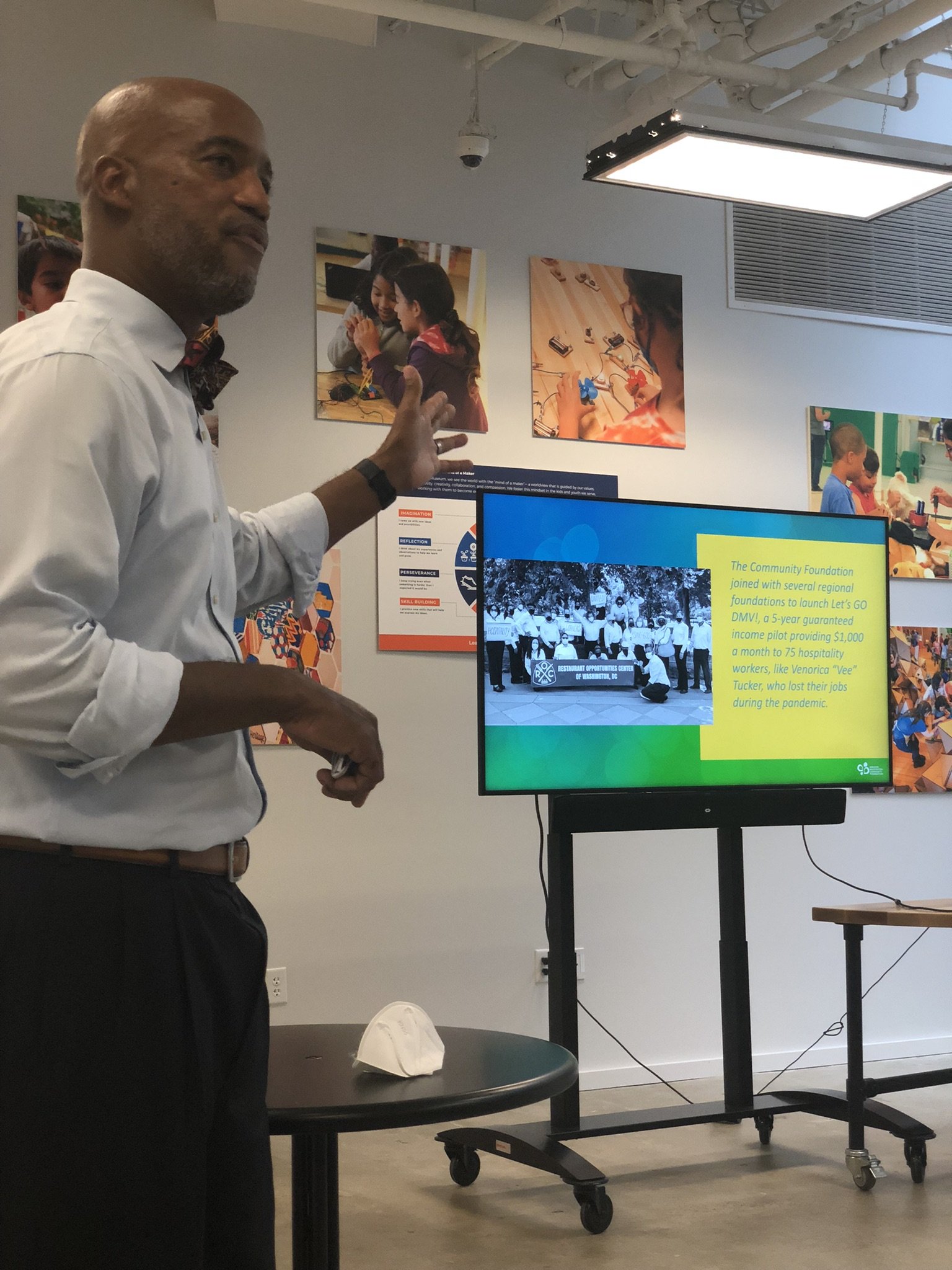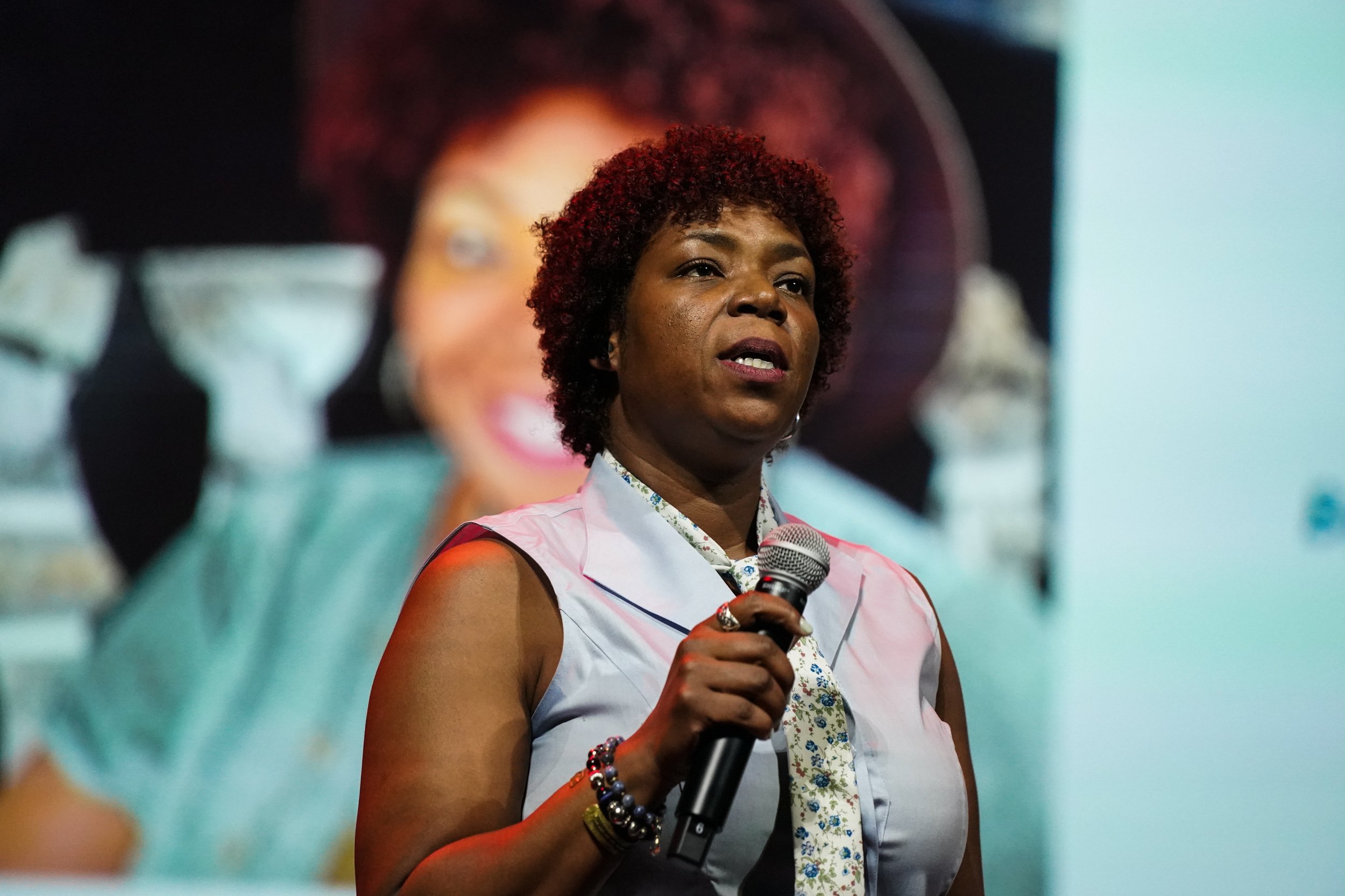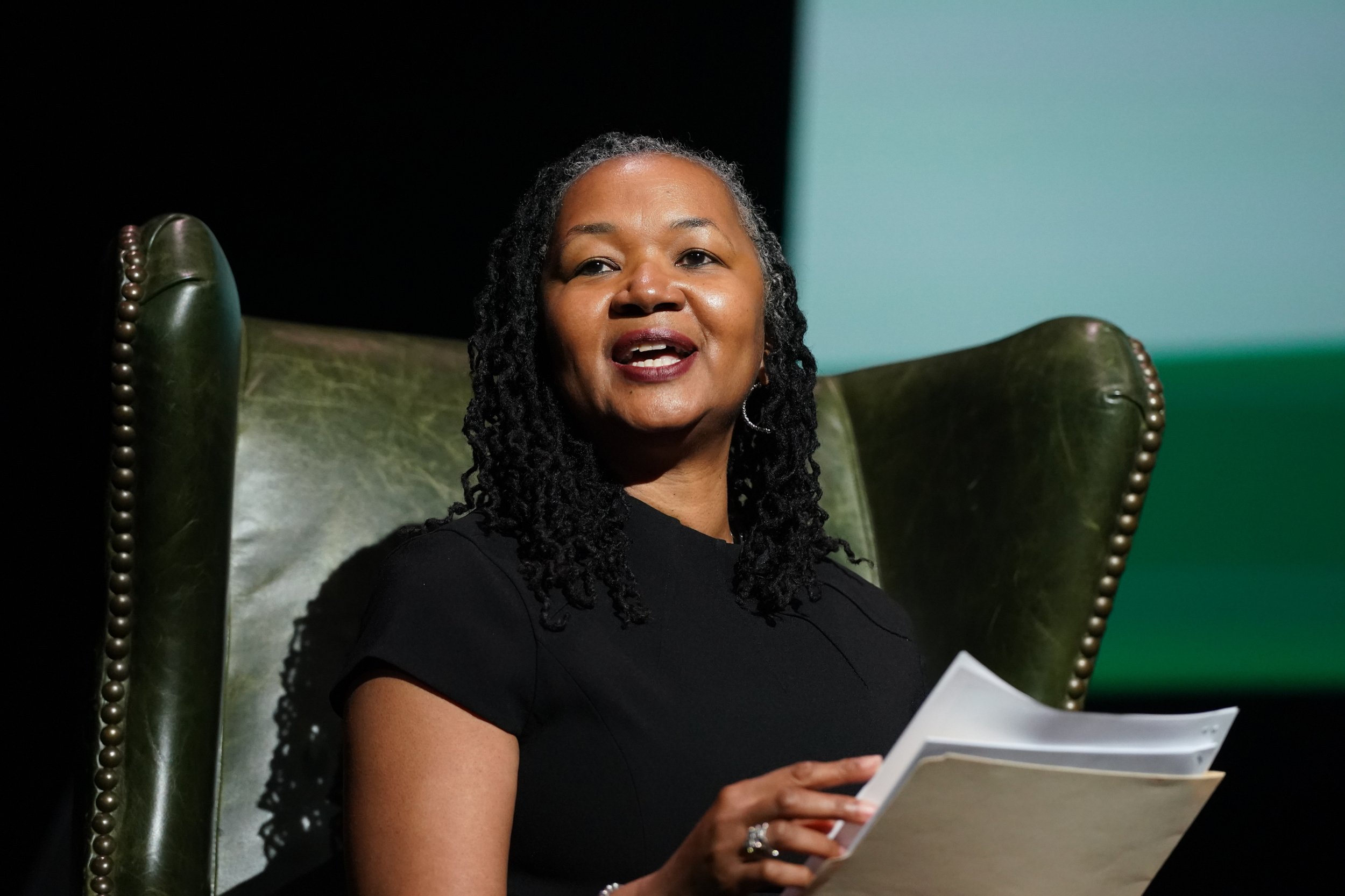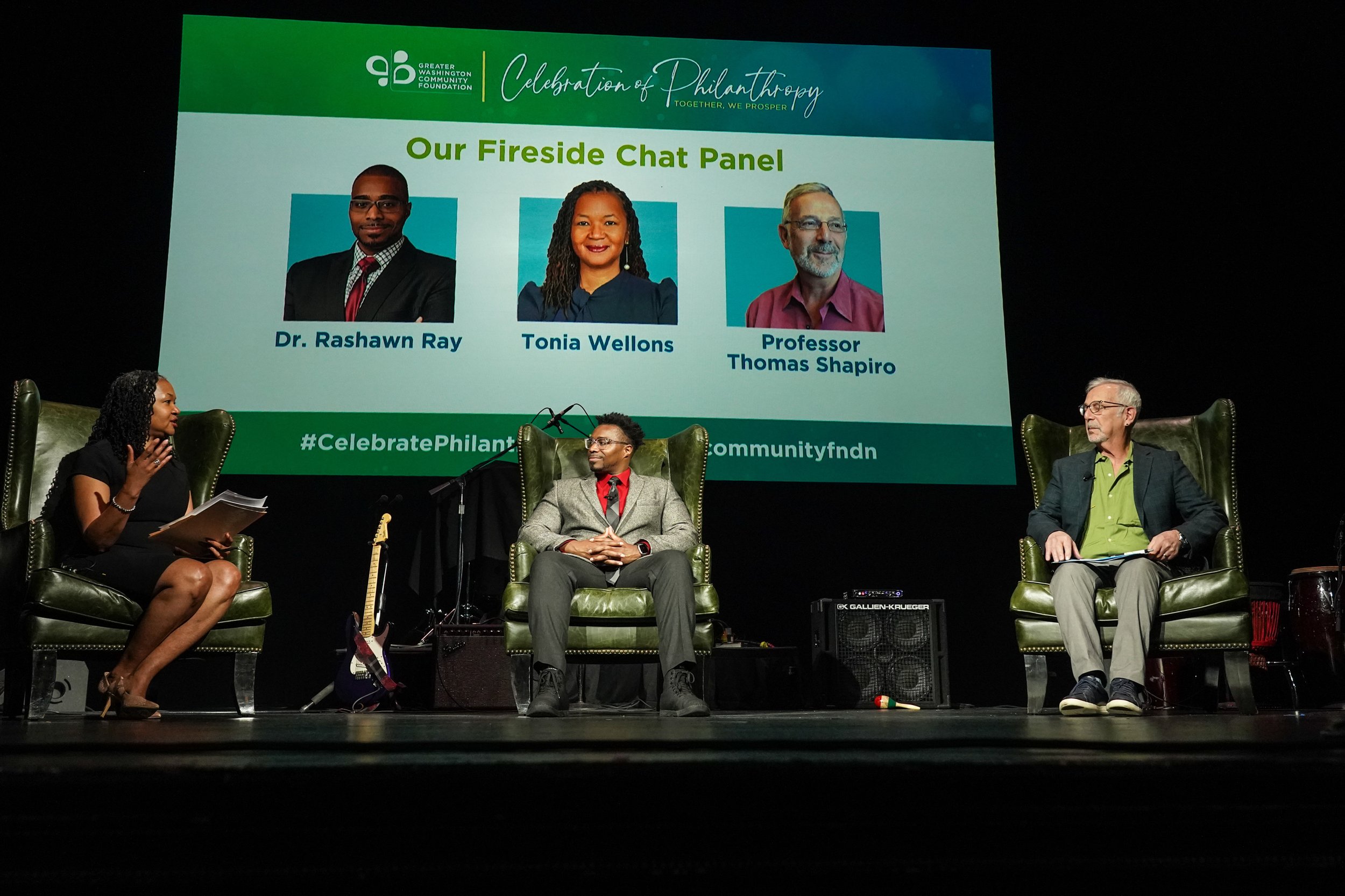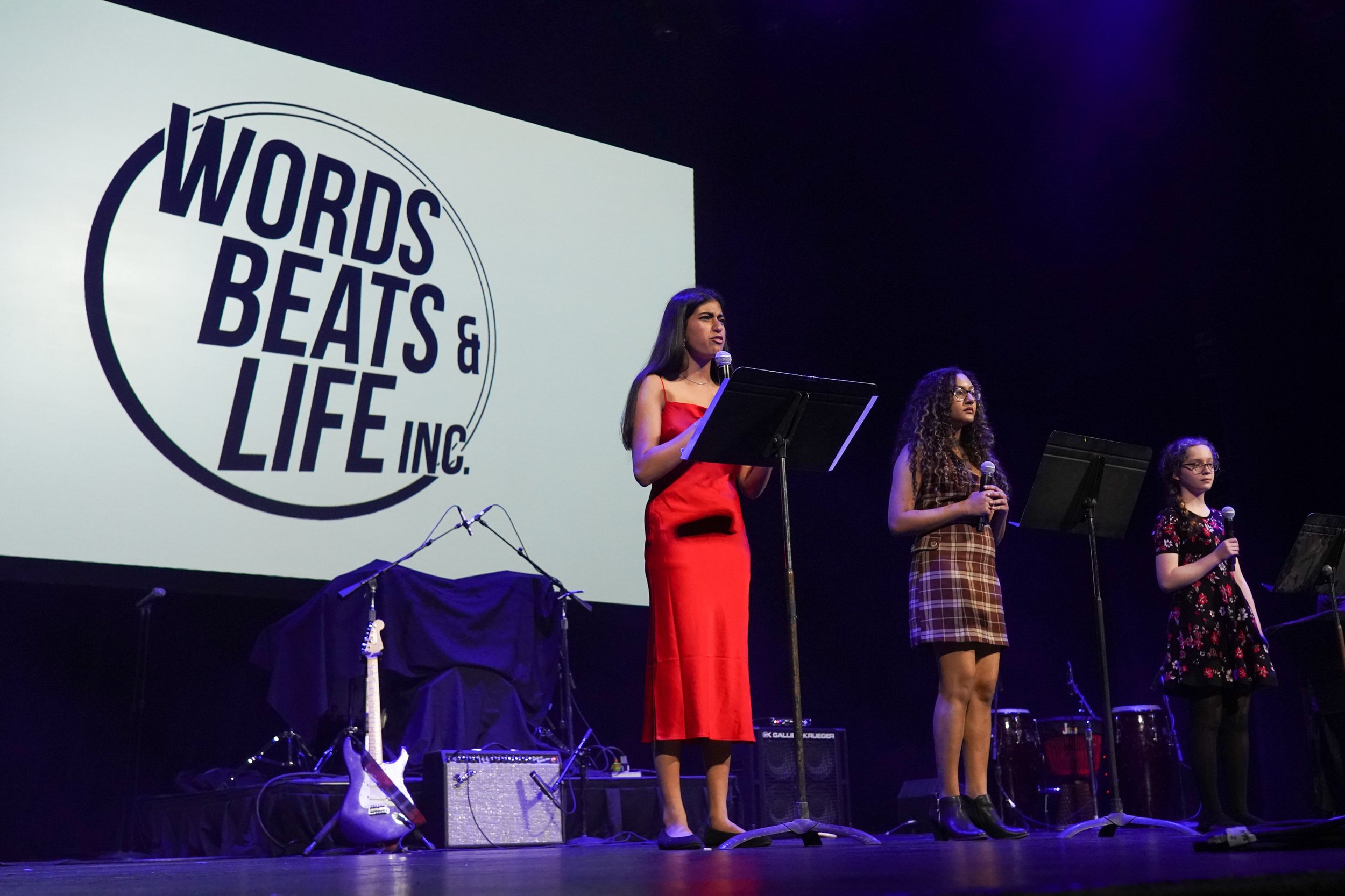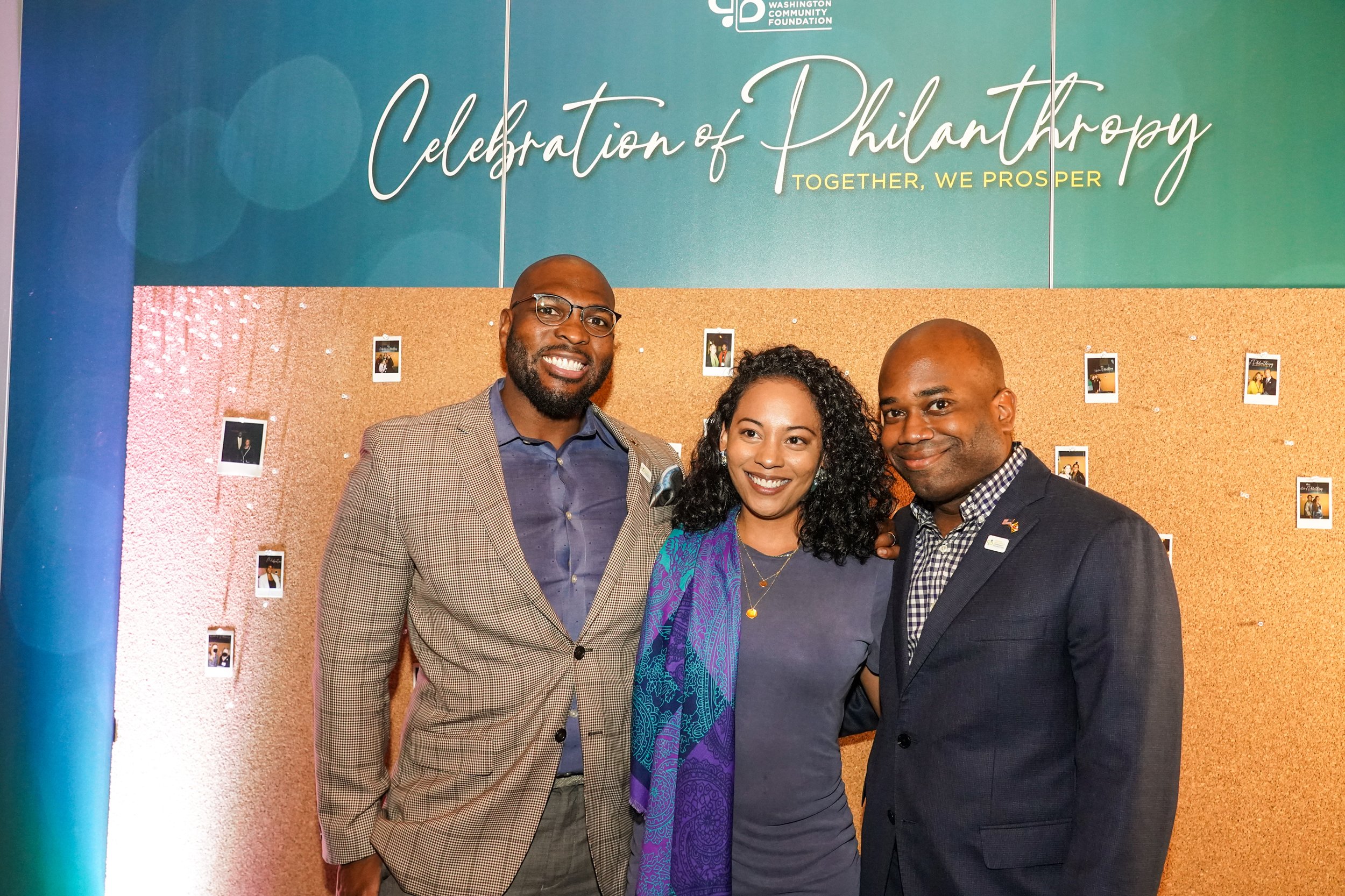The Greater Washington Community Foundation is excited to announce more than $765,000 in grants awarded to nonprofits through two initiatives strengthening community and education in the District and Montgomery County.
This was an exciting grant round for both initiatives — the Martha’s Table Community Impact Fund, a partnership between The Community Foundation and Martha’s Table to support and strengthen Ward 8 nonprofit organizations historically excluded from institutional philanthropy — and the Children’s Opportunity Fund, which recently announced it’s launch as an independent nonprofit organization.
Below is the complete list of grant recipients for each of the funds:
Children’s Opportunity Fund
Action in Montgomery (AIM) is a broad-based community power organization rooted in Montgomery County’s neighborhoods and congregations. They are a non-partisan, multi-faith, multi-racial organization and dedicated to making Montgomery County and the State of Maryland a better place to live and thrive. This grant will support organizing teams of BIPOC (Black, Indigenous and people of color) parents to address structural barriers related to access to early childhood education.
Advancing Black Lives in Education, Inc. (ABLE) was established by a small group of former educators, administrators, school board members and Montgomery County Public School parents to address the needs of Black children and families during the pandemic. This grant will build ABLE’s capacity to continue developing and improving the tutoring opportunities and supports.
Arts on the Block (AOB) empowers youth to be creative and encourages them to contribute to the quality of life in their communities. AOB implements a Youth Arts Movement (YAM) program that provides quality out of school time experiences that support the social-emotional development of young black, brown and low-income students in Elementary Schools. This grant will support programming that integrates literacy, dual-language exploration, visual arts and STEM elements.
BlackRock Center for the Arts provides opportunities to explore, celebrate and engage in the arts. This grant will allow BlackRock to provide summer arts programming to low-income children and their families in the northern part of Montgomery County.
Comunibuild Foundation, Inc. implements I.S.P.O.T. (Instructional Support Providing Online Training) which includes all-inclusive programming of early literacy, STEM and community engagement activities. This grant will support an out of school time I.S.P.O.T. program offered for students in K-3 in the Spencerville and Burtonsville communities of Montgomery County.
Empowering the Ages transforms lives through facilitating and nurturing relationships across all generations. Senior volunteers are connected with 4-5 year old children for tutoring, mentoring and providing additional supports to families. This grant will support the expansion of a school readiness and family engagement program for Pre-K and Head Start students into their kindergarten year.
Imagination Library of Montgomery County is an affiliate of a national, evidence-informed program that provides a free book to any child enrolled between the ages of birth to age 5. This grant will expand the partnership of COF established in 2020 to strategically and intentionally grow enrollment from 800 students to over 1,500 in 2022.
Interages is an intergenerational program model that supports seniors to tutor and mentor young people in our community. This grant will support AmeriCorps Seniors Foster Grandparents program, which matches a senior with PreK-Grade 2 students at three high need Elementary Schools in Montgomery County, and the continuation of the tutoring program at Daly Elementary School, in partnership with Thriving Germantown.
Kid Museum is an equity-focused educational nonprofit serving Montgomery County and the greater Washington DC metropolitan area since 2014. A pioneer in “maker learning,” KID Museum’s programs build sustained engagement in STEM and creative problem solving, empowering youth of diverse backgrounds to become the next generation of innovators and changemakers. In 2021-2022, this grant has supported the expansion of out of school time programs and programming for students from under-resourced communities on non-school days, including development of a K-3 curriculum for out of school time that integrates literacy, STEM and social-emotional learning.
Montgomery Housing Partnership, Inc. (MHP) preserves and expands affordable housing, empowers families, strengthens neighborhoods and provides support services to families in their housing units. This grant will support the Play and Learn program which provides kindergarten readiness opportunities for low-income youth and English Language Learners.
PEP (Parent Education Program) partners with communities to provide parenting classes. This grant will serve approximately 100 Latino and African immigrant families and over 250 children to provide virtual parenting classes during the 2022-2023 school year.
Prevention of Blindness Society of Metropolitan Washington implements the Glasses4Scholars program to address the unmet vision needs of student to increase academic grades and attendance. In partnership with Montgomery County Public Schools (MCPS) and Department of Health and Human Services (DHHS), this grant will provide screenings, eye exams and eyeglasses to identified students in grades K-2nd.
Story Tapestries, Inc.: will focus on programs in the early childhood years that build emergent literacy skills for economically impacted youth, educator and caregivers in Montgomery County, MD. This grant will provide professional development for educators to create inclusive learning environments, family support through interactive events and literacy kits.
The Civic Circle is a nonprofit that empowers young students to understand and participate in democracy through music and the arts. This grant will increase staff capacity to serve more students in Eastern Montgomery County, MD.
Thriving Germantown is a community school model that works collectively with various stakeholders to improve outcomes for low-income children in the Germantown area of Montgomery County. This grant will support the educational, health and social inequities addressed through a community hub model which provides care coordination, community empowerment opportunities, and ensures that the right services are available to reach vulnerable families at Daly Elementary School and other surrounding schools.
Wonders is an organization creating and advancing high-quality, diverse educational communities to teach children the foundations for life-long learning and social responsibility. This grant will enable Wonders to increase the number of workshops focused on equity in early learning utilizing a professional development model to address workforce training and retention challenges in the Early Care and Education (ECE) community .
Community Impact Fund
Anacostia AMP Outreach Empowerment Center is committed to bringing Healing, Opportunity, Provision, and Empowerment to communities East of the River.
Bright Beginnings uses a whole-child, two-generation approach to promote the long-term development and success of children and families experiencing homelessness and housing instability in Washington, DC. Their early learning centers offer full-day, year-round and developmentally-appropriate early childhood education for children from birth to five years old, at no cost to their families.
Bright Beginnings offers comprehensive wrap-around services to both children and their parents with the goal of supporting families as they take the brave journey from crisis to self-sufficiency.
Family & Friends of Incarcerated People (FFOIP) is an organization whose primary mission is to foster community support that effectively meets the needs of today’s at-risk children and families of those incarcerated. It operates solely to promote charity, literacy, public safety, and to avoid inter-generational incarceration.
FFOIP serves DC area children of the incarcerated and at-risk youth by engaging them in social, cultural and youth development activities through our various projects, programs, and events.
Healthy Babies Project, Inc. is a private, not-for-profit, community-based support organization that helps the poorest District youth build stable lives.
Horton’s Kids empowers children growing up in DC’s most under-resourced communities so that they graduate from high school ready for success in college, career, and life. They serve 500 children in grades K-12 living in Wellington Park & Stanton Oaks – neighborhoods that have been profoundly impacted by decades of disinvestment and barriers to opportunity.
Inner Thoughts, Inc. was founded to 1) develop, consult and exhibit through creative expression the talents of others and those within the realm of the corporation, utilizing the medium of the arts and media; 2) to foster the development of a stable, diversified and local economy and/or economic activities which through career counseling and referral, promotes potential economic well-being and reduces dependency on social services, and 3) to support local access, by our youth, to programs and services which are essential to a self-sufficient community.
Project Create provides opportunities for creative youth development through accessible, multidisciplinary arts education to empower young people and amplify their voices. They collaborate with children, youth and families in an inclusive and supportive community where art is healing and transformative.
Safe Sisters Circle is a 501(c)(3) nonprofit that provides free culturally specific, holistic, and trauma-based services to Black women survivors of domestic violence and/or sexual assault primarily living in Washington, DC's Wards 7 and 8.
Victory Youth Center operates the Mary Virginia Merrick Center, which provides high quality out of school curriculum and recreational programs. It is a safe space in the community where youth and families in Ward 8 can consistently gather to enrich their mind, body and spirit.
William Lockridge Educational and Scholarship Fund - provide financial aid to DC Public School graduating senior interested in pursuing post-high school course of study at either a college/university or other postsecondary institution.

















